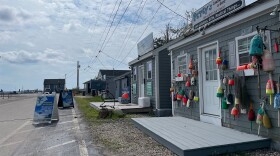Starting today, Seacoast communities are competing to see which town or city can get the most residents to support clean energy through their electric bill.
Dover, Durham, Newmarket, Portsmouth and Exeter are challenging households enrolled in local community power programs to opt for slightly higher electric rates that represent larger shares of renewable energy. The competition runs through the end of January 2025, when utilities across the state will again change their rates on their biannual cycle.
All of the communities involved in the challenge are part of the Community Power Coalition of New Hampshire, which includes about three dozen municipalities with active programs. About 94% of the coalition’s customers are using the “basic” rate, comprised of 24.3% renewable energy. That’s a number mandated by the state’s Renewable Portfolio Standard.
But the coalition also offers rates that represent a higher share of renewable content: 33%, 50% and 100%. Though the electrons powering a home all come from the same flow on the grid, the coalition uses rate premiums to purchase Renewable Energy Certificates, or “RECS.”
The organization says that practice creates more demand for RECS, in turn encouraging more investments in renewable energy projects.
Three communities – Hanover, Peterborough and Plainfield – use the 33% option as their default power and the vast majority of their residents use that, while some opt for other options.
“No one really thinks about where they're buying energy. It's just a utility and you pay your bill,” said Lisa Sweet, the vice-chair of the Community Power Coalition. “I think the challenge is just educating people about where your energy comes from and where it can come from.”
The coalition’s rates for its options up to 50% renewable are lower than Unitil, Liberty and Eversource’s rates through January 2025. Its rate for 100% renewable energy is about a cent and a half higher than Unitil and Eversource rates, and a cent higher than Liberty’s.
For Newmarket Town Council member Joe Lamattina, the rate options community power offers are a way to reach the town’s goals.
“We're trying to get off of fossil fuels and reduce our carbon footprint,” he said. “Newmarket has a fair amount of apartments, condominiums and houses that are not good for solar panels. And this is a way for the community to ‘up’ to cleaner energy, reduce our carbon footprint and still be saving money.”








